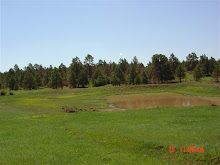Tests show high levels of air-borne chemicals at Venice
I doubt that many coastal communities have really thought about what they might now be breathing thanks to the BP disaster.
Written by Walter Pierce
Monday, 10 May 2010
Tests conducted last week in Venice by environmental chemist Wilma Subra show highly elevated levels of hydrogen sulfide and other volatile organic chemicals, according to the Louisiana Environmental Action Network. Subra monitored the air in Venice — one of the southernmost points of coastal Louisiana and the base of operations for much of the oil-containment efforts related to last month's Deepwater Horizon explosion and oil spill — from April 28 to May 7.
Her analyses show that hydrogen sulfide, a colorless, flammable gas that is found in high concentration in natural gas and in smaller concentrations in crude oil, reached a high point of 1,192 parts per billion on May 3. Hydrogen sulfide is detectable by smell at .5 ppb and can cause physical reactions such as irritation to the eyes, nose, throat and lungs as well as nausea, dizziness, confusion and headache at 5 to 10 ppb. On three of the days during the monitoring period, hydrogen sulfide exceeded the physical reaction level by 100 to 120 times.
Subra’s analysis also found that between April 30 and May 6, levels of volatile organic chemicals such as benzene, tetrachloroethane, nitropropane and ethylene chloride likely exceeded Louisiana Ambient Air Standards and may have exceed the highest concentration of Annual Average Standard by up to 50 times.
Subra’s analysis of air quality at Venice was conducted at the request of the Environmental Protection Agency.
Click here for source article






0 comments:
Post a Comment